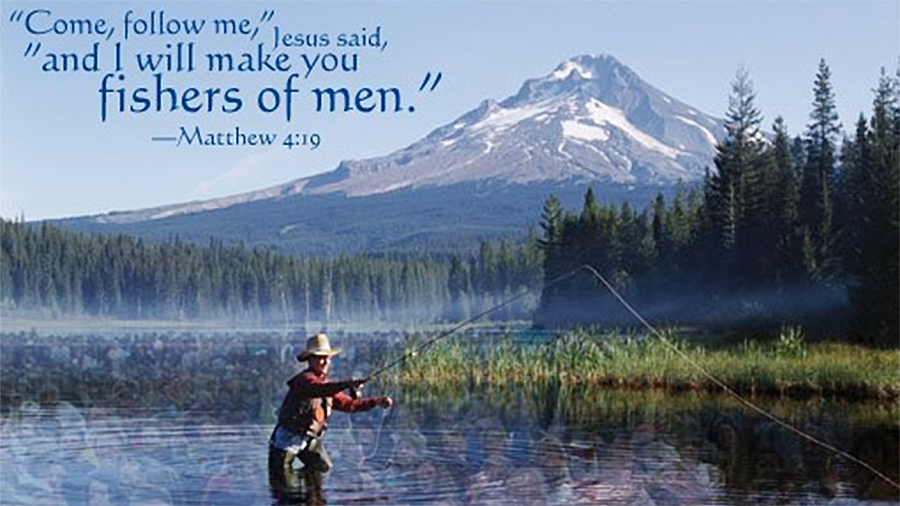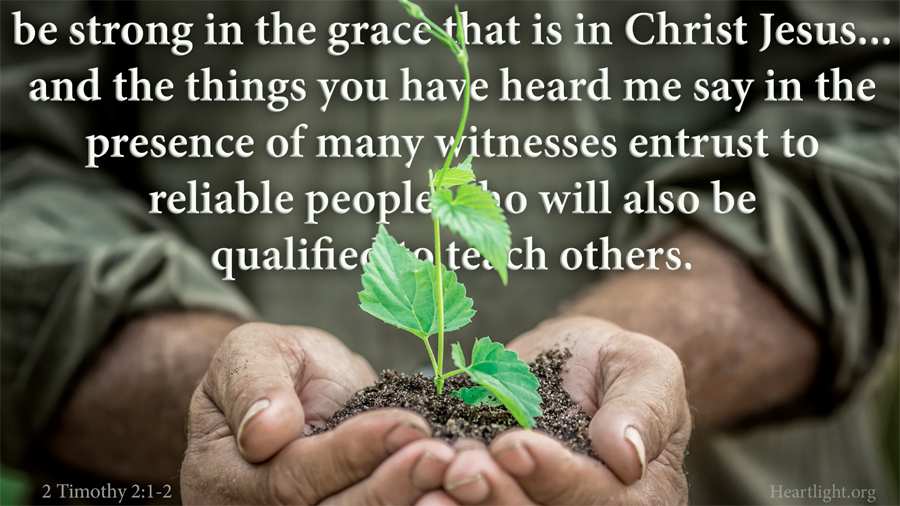I was not quite twenty-four, and my dad hovered near death. My dad was on a ventilator and had three abscesses in his lungs. He wasn't supposed to make it through the night. I was staying with him until he lost consciousness. All we had to communicate around the sound of the ventilator was a simple wax tablet with a plastic cover you write on, then lift the cover, and it would erase.
Over the up-and-down whine, we communicated in simple abbreviated statements. I could see from dad's eyes that he was barely still with me. We spent our last several minutes sharing our love as he expressed what was in his heart. I asked him, "Afraid of dying?"
His answer was clear. He wrote in all capital letters: "NO!" Then, he motioned for me to clear the screen and wrote, "Just gettin' there." So, I said, you are not afraid of dying, just the process of getting there. He then nodded yes and pointed upward, then gave a weak wink. Then, as his last words to me, he motioned me to erase, then wrote, "Take care of your mom!"
Last words, especially when everyone knows they are the last words, carry great significance. They echo in our hearts through the generations. I remember these words and facial expressions, now over four decades old, as if they were yesterday. They still inspire and inform me in my actions today.

Jesus' last words on the cross are significant to us. However, the words Jesus wants us most to remember are his last words before ascending back to the Father. These words should inform and inspire us as his disciples. They should be the words that shape our mission and guide our work as disciples. Jesus intentionally chose these to be his last words, and he gave them with an emphasis on his authority to use them as his commands for us as his people:
Then the eleven disciples went to Galilee, to the mountain where Jesus had told them to go. When they saw him, they worshiped him; but some doubted. Then Jesus came to them and said, "All authority in heaven and on earth has been given to me. Therefore go and make disciples of all nations, baptizing them in the name of the Father and of the Son and of the Holy Spirit, and teaching them to obey everything I have commanded you. And surely I am with you always, to the very end of the age" (Matthew 28:17-20).
Matthew's account has one true verbal imperative - "make disciples of all nations" - followed by three imperatival participles (grammatically, these are three processes that Jesus commanded as necessary to carry out his command to make disciples):
- "Therefore go" - or literally, "get going";
- "[B]aptizing them in the name of the Father and of the Son and of the Holy Spirit";
- "[T]eaching them to obey everything I have commanded you."
Jesus made clear that his last command was for his disciples to "make disciples"! They were to reach out to all nations of people as they made these disciples. They were to go to those other nations on Jesus' mission to share God's love, grace, and mercy God gave them in Jesus. They were to baptize those who believed in him. They were to train those newly baptized believers to obey the teaching and example of Jesus.
Jesus gave one clear command. He emphasized three essential processes to obey the command. (Over the next four weeks, we will ask ourselves if we have taken Jesus' last command seriously and if we made the processes that he commanded our mission of first importance.) In one form or another, each of the four gospels has a version of Jesus' message that seems to have been repeated several times in his last days:

If we read these accounts of the Lord's Great Commission and the book of Acts that shows how they lived out their Master's command, we can't help but notice some differences between what they did and what we do. Jesus didn't command his disciples to have people to make decisions; he told them to make disciples. Jesus didn't ask them just to invite people to their gatherings; he told them to go to other people to make disciples. He didn't ask them to fellowship with people like them; he told us to reach out and make disciples of all nations.
Disciple-making is way more challenging than attracting folks to a great worship experience. A great worship experience, a quality biblical speaker, and a great set of programs for all ages - including singles, families, children, and those in need of ministry - are fantastic. However, these are not Jesus' mission for us, nor are they Jesus' final command to us. I know of great churches with all the things I listed who have not forgotten that those things complement our primary mission: making disciples and training those disciples to make disciples.
Many churches, unfortunately, have tried to play copy-cat or imitate these transformational churches but have forgotten Jesus' primary mission for them. If you read the story of Jesus' ministry, you will notice that Jesus NEVER aimed to attract a huge crowd. He had compassion for the masses. The Lord cared for the people in the crowds. He healed and ministered and served those who needed him in the masses. But the Lord didn't trust them. When he had a crowd, he taught them and challenged them to follow him in the way of discipleship, the way of the cross. He told them the truth about the will of God. Sometimes, the crowds turned away from Jesus. In the last week of the Lord's life, the crowds turned against him.
From all we see in the book of Acts, Jesus' apostles, who led to Jesus and trained to be disciples, followed Jesus' final command and its three commanded processes diligently, passionately, and consistently. Their Lord's command was crucial to "What is CORE" about their Christian faith.
"What is CORE" for us must have "making disciples" as our primary purpose. If not, we have not honored the will of Jesus.

Which brings us to the questions we want to ask each week of our series:
- Do I believe this?
- Do I let this change who I am?
- Do I let this guide me to what is important in life, in fellowship, in worship, and in doctrine?
How can we not?

- Jesus!
- Believing
- Disciple-making
- Going
- Baptizing
- Training
- Loving
- Communing
- Worshiping
- Finishing
Special thanks for the use of images related to Jesus' ministry from The Lumo Project and Free Bible Images.













Comments
Have thoughts on this article? Leave a comment